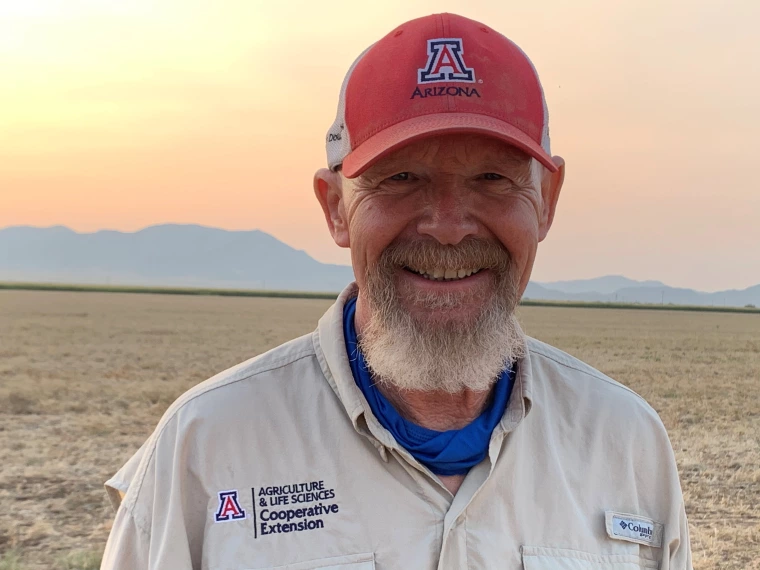Jeffrey Silvertooth
Professor
Extension Specialist – Agronomy & Soil Science

Forbes 218
1140 E South Campus Drive
Tucson, AZ 85721
Links
Research
- development of efficient crop production and management strategies
- soil-plant relationships regarding the management of nutrients essential to Arizona cropping systems
- salinity and sodicity management in agricultural soils
- improve crop production efficiencies and reduce the level of crop inputs such as pesticides, fertilizers, and irrigation water
- maintain profitability and sustainability in both the short- and long-term agricultural production systems of the desert Southwest
Degrees
- PhD in Soil Science (Soil Fertility) from Oklahoma State University, Stillwater, Oklahoma

